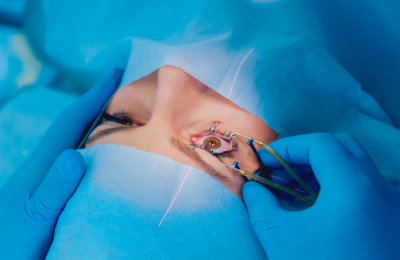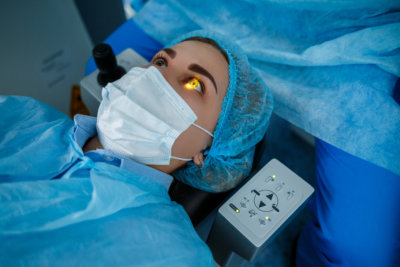Key Takeaways
- Lasik is not performed on anyone under the age of 18 or with unstable vision.
- Those with thin corneas or have abnormal corneal maps may be unsafe candidates for Lasik.
- Advanced glaucoma/ severe dry eyes may mean that one will have to wait to undergo Lasik.
- Uncontrolled diabetes/autoimmune diseases may prevent proper healing after Lasik.
- If Lasik does not qualify, it is possible to consider ICL Implantation or a Refractive lens exchange.
Why No Lasik For Me?
As a Lasik surgeon, I have to answer this question many times. Just a few months back, Samarth came to Advanced Eye Hospital for his eye check-up and Lasik evaluation. He had just turned 18 and he was basically looking forward to being 18 so that he will get the permission from his parents to get rid of his glasses. And on top of his own desire, he had an additional requirement. He was planning to get admission into merchant Navy and as a perquisite to that he needed to be glass free. At the Eye hospital, a detailed pre-Lasik evaluation was carried out which included eye number and eye pressure check, corneal mapping (Corneal Topography), corneal thickness, eye length, muscle balance, dry eyes status, health of cornea (Specular Microscopy), retina and optic nerve checking. All his tests were normal other than his corneal topography. His topography was suggestive of a forme fruste keratoconus. This basically means that there is a disease in cornea which is not manifesting itself fully at that stage but under certain conditions can become a full-blown disease. When Lasik or any other corneal based Laser procedure is carried out on the cornea, it becomes weaker. So, if cornea is weak to begin with then doing Lasik can harm it in the long run and cause keratoconus to become fully manifest. Cornea can develop a disease called post-LASIK ectasia. Even though modern surgeries like ReLEx smile is better suited for thin corneas but in situations like these where there is a pre-existing disease it is better to avoid any surgery on the cornea.
No eye doctor will advice the patient to take that kind of risk. So unfortunately, I had to advise him against Lasik. He was however suitable for ICL (Implantable contact Lens). He went through ICL surgery, got freedom from glasses and also secured the admission into Merchant navy. Sometimes when one door closes, other opens up!
This story brings an important question, what makes some people unsuitable for Lasik?
Age: People with age less than 18 are usually advised to wait to get their Lasik done
Unstable glass power:
LASIK is best done when eye power has been stable for atleast one year. What one needs to understand is that LASIK removes the eye power as per the current eye power. If eye power is not stable and is bound to increase in future, then even after a previous Lasik, eye power will increase. To prevent that from happening we postpone the surgery to future years and plan once the eye power is stable.
Thin corneas:
In Lasik surgery, laser is used to change the curvature of the cornea and this whole process makes cornea thinner by some amount which is dependent on patients’ eye power. So, if a patient already has thin corneas then the procedure may not be safe.
Abnormal corneal maps:
Corneal topography gives us the maps of the cornea. It ensures that there is no underlying sub-clinical corneal abnormality such as Keratoconus or suspect Keratoconus which can become a full-blown disease after Lasik surgery. So, if topography maps show any abnormality, we have to decline the procedure.
Advanced Glaucoma:
A patient who is a known case of glaucoma controlled on two to three medications and has advanced visual field defects or gets detected during Pre-LASIK evaluation. In either scenario we avoid performing Lasik on these eyes to reduce interference with glaucoma management.
Squint or gross eye muscle abnormality:
Anybody who is at risk of developing squint based on pre-operative evaluation may be advised to defer the LASIK surgery. In some cases, we go ahead with LASIK knowing that patient may require a squint correction after LASIK surgery.
Severe Dry eye:
People who are already suffering from severe dry eyes and produce lesser quantity or poor quality of tears are also advised to defer LASIK surgery. If the condition improves and we rule out any permanent reason for severe dryness, then LASIK can be done in future.
Uncontrolled Diabetes or autoimmune diseases:
these diseases can interfere with proper healing after LASIK and in fact increase the risk of corneal meting and infections. In these conditions we usually defer any form of non-urgent eye surgery.
Long term safety is paramount and should be kept in perspective before planning any Lasik. A detailed pre-Lasik evaluation reveals all the subtle and obvious features pointing towards future risks. Additionally, pre-Lasik evaluation helps us in deciding the most suitable options among the many different types of procedures like wave front guided Lasik, contoura Lasik, Femto Lasik, Smile Lasik and surface ablation like PRK.
If you have been advised against Lasik, please do not get disheartened. ICL implantation and Refractive lens exchange are some of the other options which can be explored.










